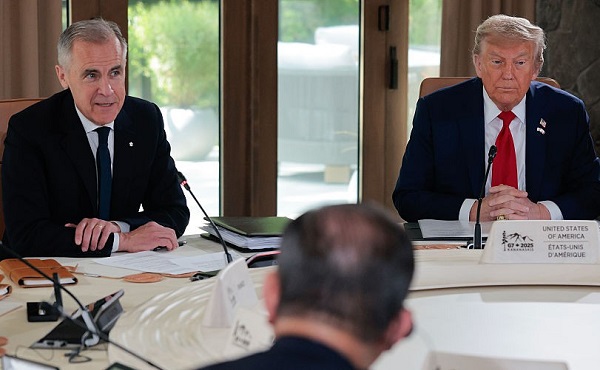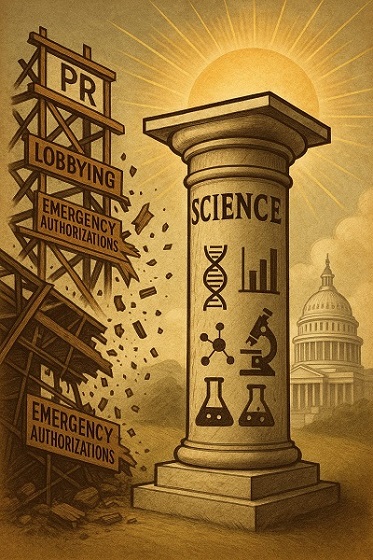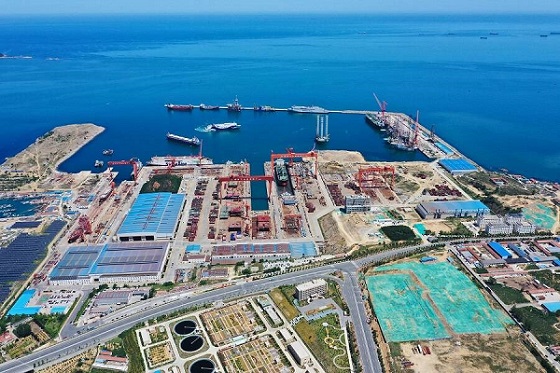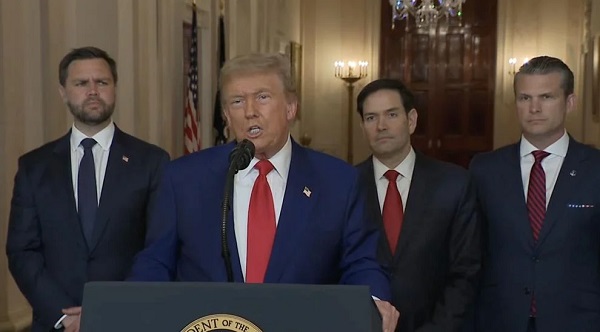Business
Carney’s Digital Tax Debacle: How Ottawa Triggered a Trade Fallout with Washington

Trump walked away from trade talks over Canada’s retroactive digital services tax—enacted by Mark Carney’s Liberal government despite clear warnings from experts, businesses, and industry leaders.
Donald Trump has officially walked away from the negotiating table. The trigger? Canada’s ill-conceived Digital Services Tax (DST)—a reckless, retroactive grab for revenue targeting U.S. tech firms. Trump isn’t mincing words: he’s calling it a “blatant, discriminatory attack” on American innovation, and now he’s moving to punish Canada economically for it.
So what exactly is this tax?
The Digital Services Tax, passed by the Liberal government and implemented under Mark Carney’s leadership, applies a 3% levy on revenue—not profits—earned by large digital firms operating in Canada. And it’s retroactive. That means it’s being applied to earnings from as far back as January 1, 2022, with companies forced to make lump-sum payments by June 30, 2025.
This tax specifically targets companies with global revenue of at least €750 million and Canadian digital revenue of at least CAD 20 million. Translation: It’s a direct hit on American giants like Google, Amazon, Meta, Airbnb, and Uber, and it spares Canadian firms and EU-based entities from equivalent exposure. It’s not tax fairness—it’s protectionism with a smiley-face sticker.
Trump has responded in kind. As of June 27, all trade negotiations with Canada are suspended. Retaliatory tariffs—already mounting since February—are set to escalate. Trump is drawing a red line, and he’s daring Canada to cross it.
What’s at stake?
Everything. Canada sends over 75% of its exports to the United States. We’re talking about nearly a trillion dollars in annual trade. With Trump now actively leveraging tariffs and ending negotiations, entire sectors—from automotive to agriculture, energy to manufacturing—are in the crosshairs.
Already this year, Trump has slapped 25% tariffs on Canadian imports, with specific hits to steel, aluminum, vehicles, and auto parts, and 10% tariffs on Canadian oil, gas, and potash. These moves have already disrupted markets. Ending trade negotiations is a body blow to an already wobbly Canadian economy—still reeling from Trudeau-era mismanagement and Carney’s corporate globalist agenda.
So who could have seen this coming?
Almost everyone.
In testimony before the House of Commons Standing Committee on International Trade on June 11, 2024, Dr. Meredith Lilly, Associate Professor and Simon Reisman Chair in International Economic Policy at Carleton University, issued a precise and deeply informed warning about Canada’s Digital Services Tax (DST).
Dr. Lilly, a leading authority on North American trade, emphasized that unilateral implementation of a DST would “discriminate against large U.S. firms” and could trigger U.S. retaliation under the Canada-United States-Mexico Agreement (CUSMA). Her words were clear:
“Unilateral action by Canada to introduce a digital services tax would discriminate against large U.S. firms. We should be prepared for U.S. retaliation if these measures are enacted, and Canadian lawmakers should be aware of the damaging consequences for the broader CUSMA review process.”
She explained that such policy moves could provoke formal dispute resolution under CUSMA Chapter 31 and complicate the 2026 review of the trade agreement. Dr. Lilly stated unequivocally:
“Both of these things [the Online Streaming Act and the DST] will complicate the process and result in a full review if they aren’t addressed before then.”
This wasn’t a political shot—it was an expert diagnosis. Dr. Lilly’s analysis made it crystal clear: if Canada chose to proceed with a retroactive, discriminatory tax on U.S. digital firms, the blowback from Washington wouldn’t wait until 2026. It would come sooner. And it did—on June 27, 2025, President Trump pulled the plug on all trade talks with Canada, citing the DST as a direct affront to American companies and fair trade principles.
In a June 2024 committee hearing, MP Kyle Seeback pressed experts on the fallout of Trudeau-era policies like the Digital Services Tax, asking bluntly:
“If these all go through and are implemented, as it looks like the current government wants to do, will it make the CUSMA review easier or more complicated?”
Dr. Meredith Lilly didn’t mince words:
“If the online streaming act and the digital services tax move forward, I fully expect action to happen before the 2026 review. I think the Americans will respond.”
So Kyle Seeback saw it. Meredith Lilly warned about it. But this wasn’t just a red flag waved by a few policy experts or MPs in a backroom committee. No—Canada’s entire business community was screaming from the rooftops about the catastrophic implications of the Digital Services Tax.
Let’s be clear: this wasn’t some quiet objection buried in legalese. It was a full-blown economic revolt.
The Canadian Chamber of Commerce called it out as early as September 2023, warning that the tax would raise prices on digital services, hammer consumers, and almost certainly provoke retaliatory tariffs from the United States—a country that, I might remind you, accounted for $960.9 billion in bilateral trade in 2022 alone.
The Retail Council of Canada joined the fight in June 2025, warning that retailers and everyday Canadians would be caught in the crossfire of U.S. retaliation. The Business Council of Canada didn’t mince words either, saying the tax carried “serious economic consequences” and “a high risk of sparking a trade dispute”—exactly what happened when Donald Trump walked away from trade negotiations.
And it didn’t stop there.
The Canadian Bankers Association, Canadian Life and Health Insurance Association, Canadian Venture Capital Association, and Future Borders Coalition all signed a joint letter in June 2025 pleading with Mark Carney’s government to hit pause. They warned of massive financial disruptions, threats to investment stability, and damage to border operations.
This wasn’t lobbying. It was a desperate attempt to prevent economic self-harm.
Even the groups who typically tread lightly around Ottawa saw the writing on the wall. They were begging for sanity. And what did the Liberal government do? They shoved the tax through anyway—retroactive to 2022—and waited for the backlash.
Well, it came. Trump walked. Tariffs hit. Negotiations died. And Canada’s business leaders, from Bay Street to the border crossings, are now left to deal with the fallout they predicted—and Trudeau’s team ignored.
You were told the Liberals were the “adults in the room.” That they could navigate Trump. That they understood diplomacy, trade, and economics. But let’s be honest—an eight-year-old could have seen this coming. You slap a retroactive tax on American companies, and you expect no consequences? That’s not strategy. That’s stupidity.
This entire debacle is proof that the Liberal Party is utterly incapable of negotiating with strength. They don’t understand leverage, they don’t understand power, and they clearly don’t understand how to protect Canada’s economic interests. Mark Carney, Trudeau’s handpicked heir, isn’t some master tactician—he’s a globalist relic from 2008, still clinging to failed ideas and the fantasy of technocratic rule.
Unfortunately for him—and for us—this isn’t 2008 anymore. The world has changed. Trump is back, the rules are different, and while other countries pivot, adapt, and push back, Canada’s Liberal government is stuck in the past. Rigid, arrogant, and dangerously out of touch.
What we’re witnessing isn’t just a policy failure. It’s the collapse of a worldview—the end of the Liberal fantasy that globalist tax schemes, virtue signaling, and bureaucratic arrogance can substitute for real leadership. And it’s playing out in real time: with lost jobs, broken trade relationships, and Canada’s economic credibility circling the drain.
But here’s the good news: Canadians are waking up.
The Liberal government, now clinging to a minority held together by duct tape and desperation, won’t be around for long. The legacy media can’t protect them forever. The echo chamber of downtown Toronto can’t drown out the truth spilling out from small towns, border communities, and every corner of the real Canada.
This is a patriotic call to action. The sooner an election is called, the better. Because Canada cannot afford more of this. We cannot afford a government that punishes productivity, antagonizes our closest ally, and drives our economy into a wall—all while patting itself on the back for “moral leadership.”
It’s time to turn the page. Time to elect leaders who understand strength, who prioritize prosperity, and who don’t bend the knee to unelected bureaucrats in Brussels or Davos. Canada needs a government that fights for our interests—not the interests of Silicon Valley tax envy or UN think tanks.
The collapse has begun. Now it’s up to Canadians to finish the job—and rebuild this country with pride, purpose, and power.
Subscribe to The Opposition with Dan Knight .
For the full experience, upgrade your subscription.
Business
Trump terminates trade talks with Canada over digital tax on U.S. tech

Quick Hit:
President Trump on Friday abruptly shut down trade negotiations with Canada and announced retaliatory tariffs over Ottawa’s new tax on U.S. tech firms. Calling the measure a “blatant attack” on America, Trump said he would unveil new tariffs within a week.
Key Details:
- Trump blasted Canada’s Digital Services Tax on Friday, saying it unfairly targets American tech companies like Amazon, Google, and Meta.
- In a Truth Social post, Trump said the U.S. is “terminating ALL discussions on Trade with Canada” and would announce a new tariff schedule in the coming days.
- Canadian officials confirmed the tax will be enforced starting Monday, retroactive to 2022, despite strong U.S. opposition.
Diving Deeper:
President Donald Trump on Friday pulled the plug on trade talks with Canada and said tariffs on Canadian exports are imminent in response to the country’s new Digital Services Tax (DST), which targets major American technology companies.
“We have just been informed that Canada… has just announced that they are putting a Digital Services Tax on our American Technology Companies, which is a direct and blatant attack on our Country,” Trump wrote on Truth Social. The president described Canada as a “very difficult country to trade with,” referencing longstanding frustrations over high tariffs on American agricultural goods—especially dairy.
The move comes just days after Trump returned from the NATO summit, where Canadian Prime Minister Mark Carney was also in attendance. Trump accused Canada of mimicking the European Union, which is engaged in similar disputes with Washington over taxing U.S.-based tech firms.
Citing the tax as unacceptable, Trump declared that “ALL discussions on Trade with Canada” were terminated immediately. “We will let Canada know the Tariff that they will be paying to do business with the United States of America within the next seven day period,” he added.
The Canadian DST, which was passed last year, applies retroactively to 2022 and is scheduled to begin collecting payments Monday. The measure is designed to cover revenues generated by digital services operating in Canada, affecting both Canadian and foreign firms—chiefly U.S.-based tech giants like Amazon, Google, and Meta.
Canadian leaders signaled earlier this month they would not suspend the tax despite U.S. pressure, further escalating trade tensions. Prime Minister Carney, in a statement issued after Trump’s announcement, indicated Canada would remain at the negotiating table. “We’ll continue to conduct these complex negotiations in the best interest of Canadians,” Carney said, according to POLITICO.
Under current U.S. trade policy, goods covered by the USMCA are shielded from tariffs. But products failing to meet those guidelines could face steep penalties—25 percent under the April 2 “Liberation Day” reciprocal tariffs, with some Canadian energy and potash exports already subject to a 10 percent levy.
Trump’s response marks the most significant disruption in U.S.-Canada trade relations since his earlier standoff with former Prime Minister Justin Trudeau. Talks had shown signs of progress in recent months, but the Canadian DST appears to have ended that detente.
Business
Trump announces end to trade negotiations with Canada over costly digital service tax

From LifeSiteNews
Donald Trump made the announcement Friday, citing frustration with Canadian tariffs on U.S. dairy products and its newly-enacted digital services tax.
U.S. President Donald Trump announced Friday an immediate halt to trade negotiations with Canada, citing frustration with Canadian tariffs on U.S. dairy products and its newly-enacted digital services tax.
Starting June 28, Canada’s digital services tax imposes a 3 percent tax on revenue from “[c]ertain digital services that rely on engagement, data, and content contributions of Canadian users” and “[c]ertain sales or licensing of Canadian user data.”
The Albany Times Union notes that the tax would apply to companies such as Amazon, Google, Meta, Uber, and Airbnb, but most critically from an American perspective “will apply retroactively, leaving U.S. companies with a $2 billion U.S. bill due at the end of the month.”
On Friday afternoon, Trump took to Truth Social to declare, “We have just been informed that Canada, a very difficult Country to TRADE with, including the fact that they have charged our Farmers as much as 400% Tariffs, for years, on Dairy Products, has just announced that they are putting a Digital Services Tax on our American Technology Companies, which is a direct and blatant attack on our Country.”
“They are obviously copying the European Union, which has done the same thing, and is currently under discussion with us, also,” the president continued. “Based on this egregious Tax, we are hereby terminating ALL discussions on Trade with Canada, effective immediately. We will let Canada know the Tariff that they will be paying to do business with the United States of America within the next seven day period. Thank you for your attention to this matter!”
🚨 HUGE: Trump announces IMMEDIATE END to trade negotiations with Canada’s. Tariffs to be announced within 7 days.
📸 Screenshot says it all 👇 pic.twitter.com/v0SefdB2MM— John-Henry Westen (@JhWesten) June 27, 2025
The United States currently imposes a 25 percent tariff on goods deemed not compliant with the United States-Mexico-Canada Agreement (USMCA), the trade agreement Trump negotiated in his first term to replace NAFTA; a 10 percent tariff on USMCA non-compliant energy products; and a 10 percent tariff on USMCA non-compliant potash.
Politico reports that Trump and Canadian Prime Minister Mark Carney had previously set a July 16 deadline for a new trade agreement, under which it was hoped that existing tariffs would be lifted. Instead, onlookers are now bracing to see what new tariff rates will be.
The tariffs on Canada are part of the Trump administration’s broader series of varying tariffs on most other nations (which have been adjusted, lifted, and delayed at various points over the past several months). Supporters say the trade war is necessary to make international trade fairer and spur a return of domestic manufacturing; opponents argue they increase costs on American consumers and small businesses.
-

 armed forces2 days ago
armed forces2 days agoIt’s not enough to just make military commitments—we must also execute them
-

 Business2 days ago
Business2 days agoOttawa Funded the China Ferry Deal—Then Pretended to Oppose It
-

 MAiD2 days ago
MAiD2 days agoCanada’s euthanasia regime is not health care, but a death machine for the unwanted
-

 Business2 days ago
Business2 days agoMunicipal government per-person spending in Canada hit near record levels
-

 Health2 days ago
Health2 days agoRed Deer Hospital Lottery 2025 Winners
-

 Business2 days ago
Business2 days agoA new federal bureaucracy will not deliver the affordable housing Canadians need
-

 conflict1 day ago
conflict1 day agoThe Oil Price Spike That Didn’t Happen
-

 Sports2 days ago
Sports2 days agoBoxing authority says allegedly male competitor should return Olympic medal won against women








